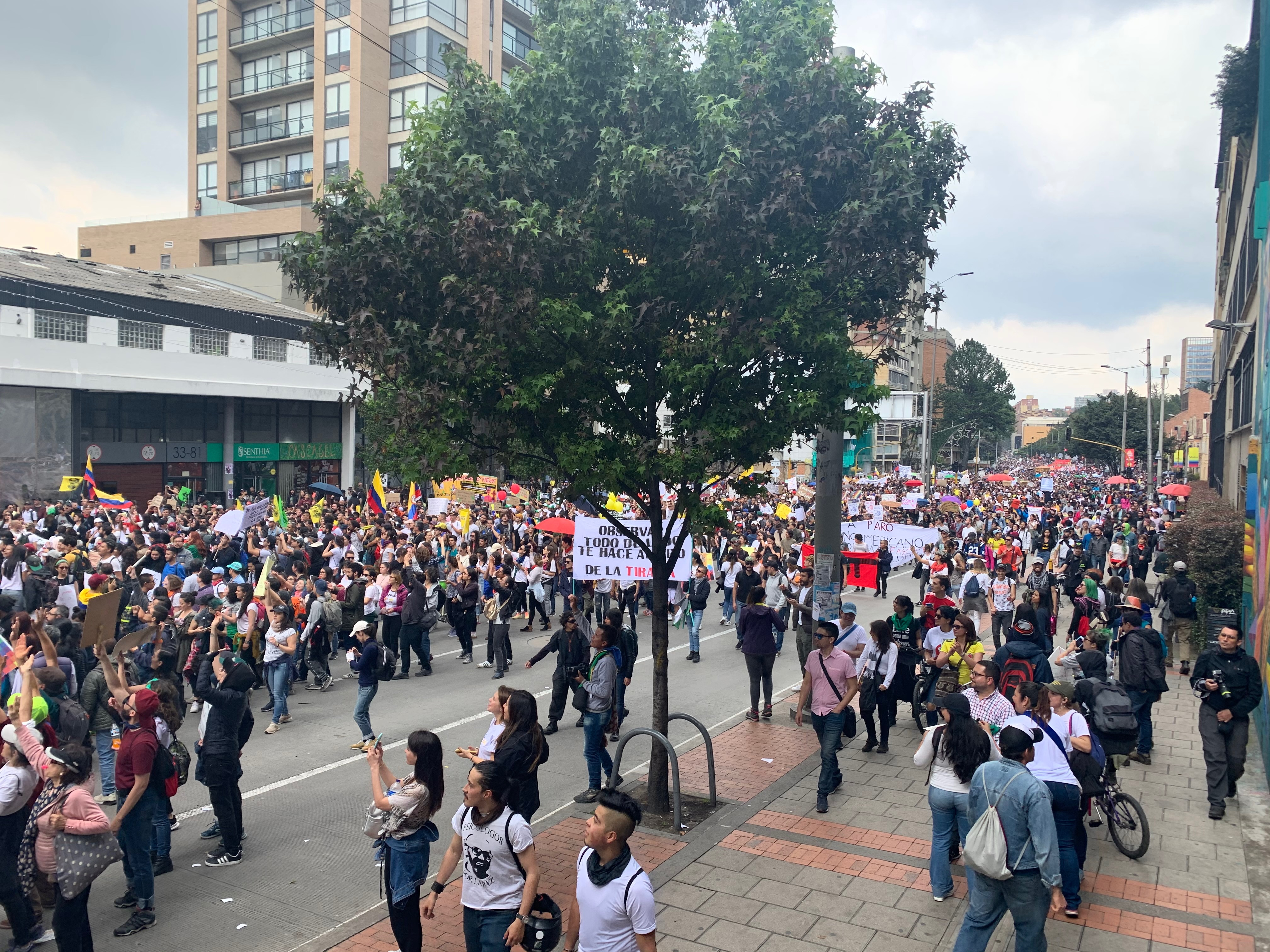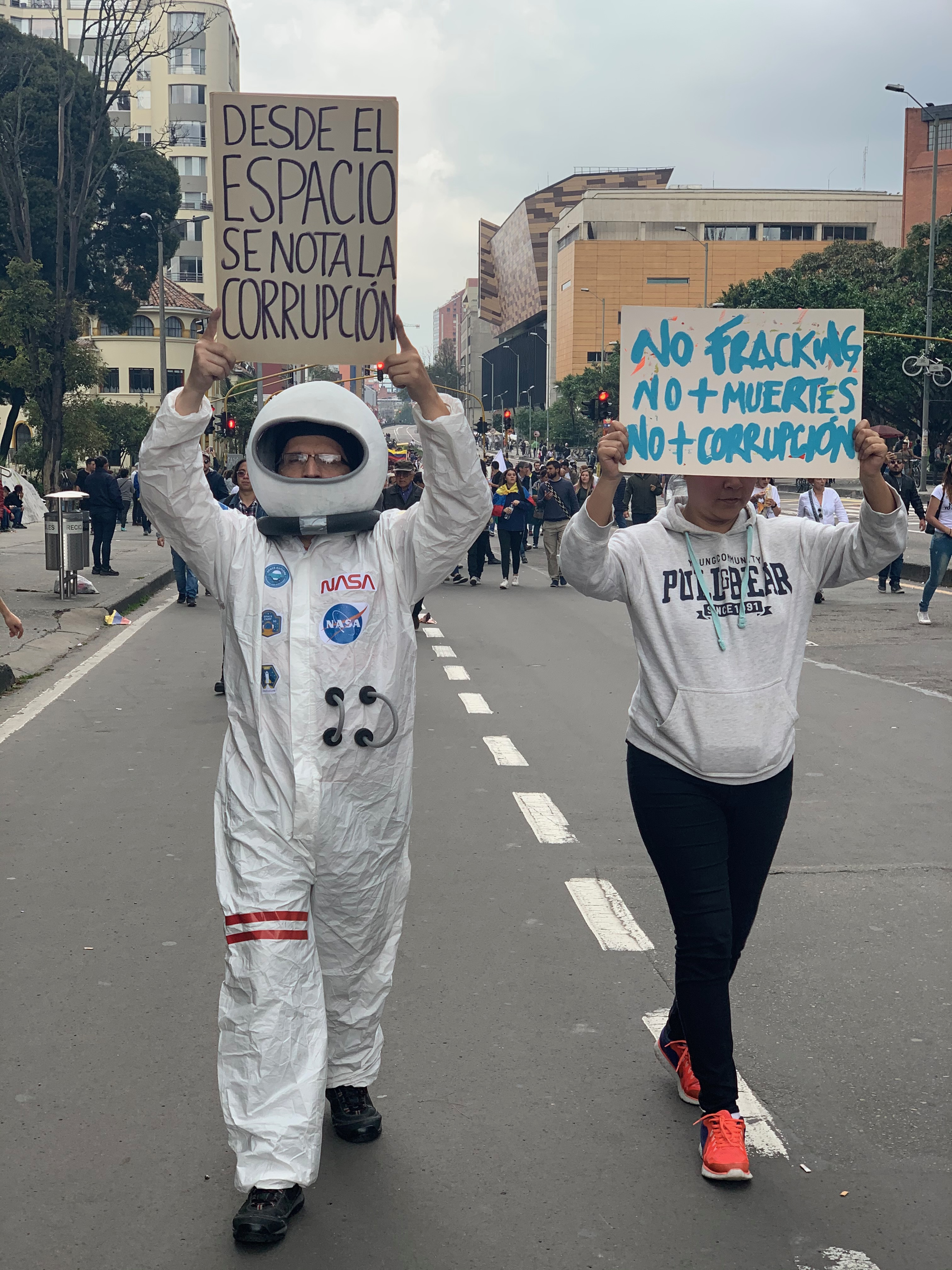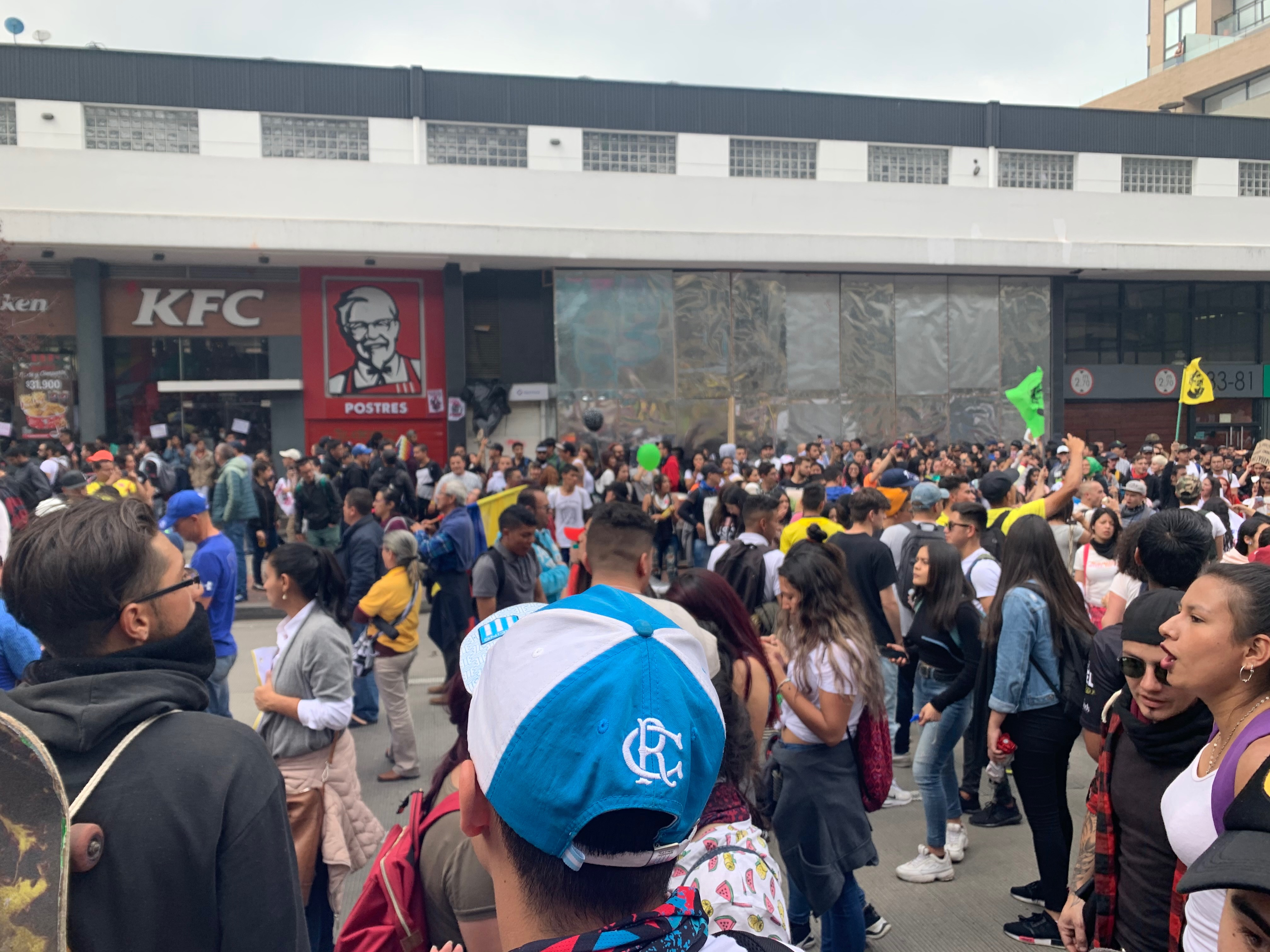Colombians took to the streets on Thursday for their first national strike in three years, amid a wave of political unrest in Latin America. Students, citizens and activists joined more than 40 worker unions striking against planned pension and labor reforms by the government.
The broad coalition of social groups had one thing in common: a discontent with the current Colombian government. Maria Victoria Moreno, a Bogota resident said she couldn't stay home. "The indifference is what kills us. We aren't doing away with all those corrupt people that are eating up our budgets and privatizing everything."
Colombian President Ivan Duque's disapproval is at its highest since he took office in August 2018. A recent Gallup poll set disapproval at 69 percent. Rising unemployment, economic reforms and a deteriorating security situation are some of the grievances.

Protesters march in Bogota's La Septima. /CGTN Photo
Protesters march in Bogota's La Septima. /CGTN Photo
Protests by indigenous leaders were received warmly by Colombian civilians. As they walked by with their staffs in hand, the crowds began to cheer. Lucho Acosta, coordinator of the Indigenous Guard, said, "When I see this support, I think of the fallen, of those indigenous who have given their life. When I see other voices rise up, I think they haven't died in vain because many more will rise."
As many as 135 indigenous people have been killed since Duque took office, says the Colombian National Indigenous Organization known by its Spanish acronym ONIC. A recent massacre in October sparked national and international calls for action.
Students and teachers were among the protesters in Bogota, meeting at seven different points in the city to march toward the city center in Plaza Bolivar. Ana Milena Fajardo, leader of the Ministry of Education Teacher's Unions said, "There is not enough education coverage. Why do so many students abandon their studies because they don't have a way to pay semesters, transportation and food?"

A protester in NASA space suit with a sign that says "We can see the corruption from space." /CGTN Photo
A protester in NASA space suit with a sign that says "We can see the corruption from space." /CGTN Photo
Leading up to the protest, fears brewed that the protest would get out of hand. The government announced the shutdown of borders. Curfews and bans on the sale of alcohol were also measures mentioned to contain the protests.
In Bogota by the afternoon there were reports of damages to the public transit system. Vandals covered their faces with black masks. But students who joined the peaceful side of the protests said there are more. "We need to let go of the terrorism that is part of the government's scare tactics. We need to not believe them, we need to go out and march with bravery and with a lot of optimism that nothing bad will happen," added Valentina, a protester.

Buildings board up to avoid vandalism. /CGTN Photo
Buildings board up to avoid vandalism. /CGTN Photo
During a private meeting earlier this week between the Colombian government and media outlets, CGTN asked what would happen if these protests go on longer than Thursday, and their answer was they have plans for every scenario, but they didn't go into any further details.